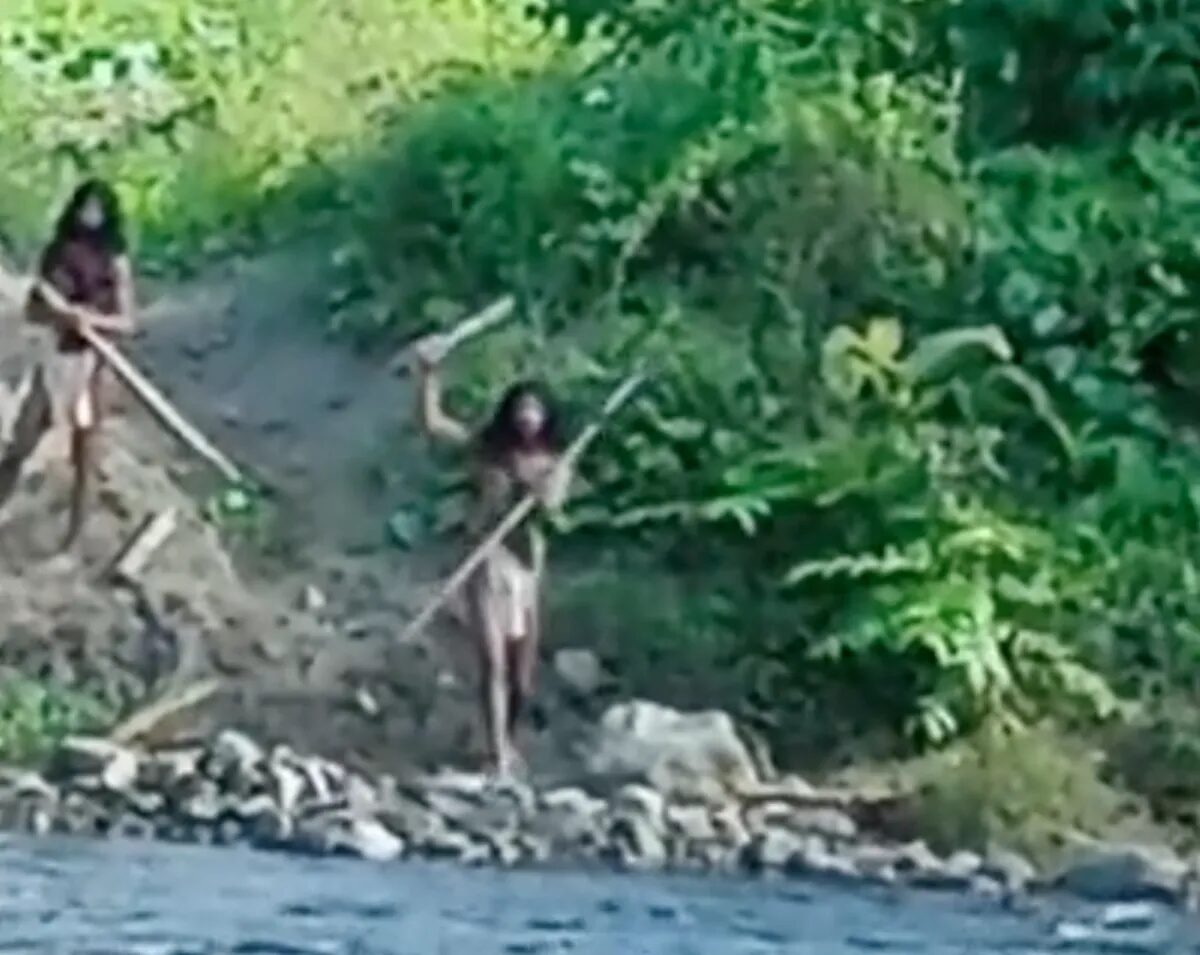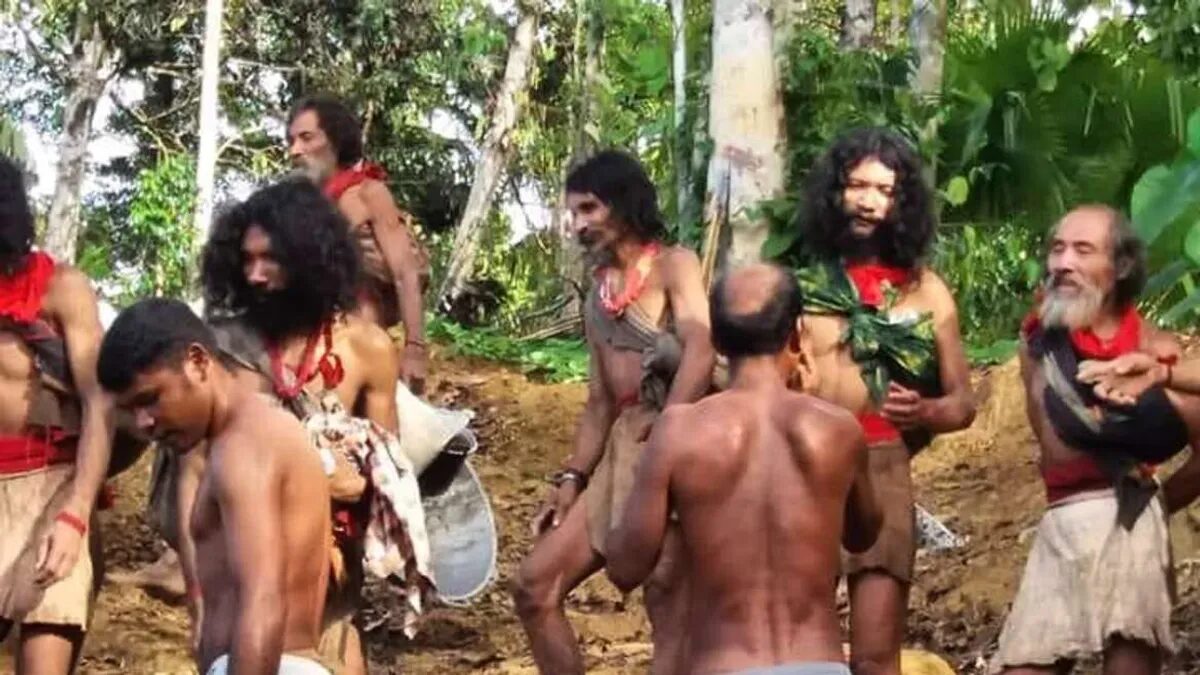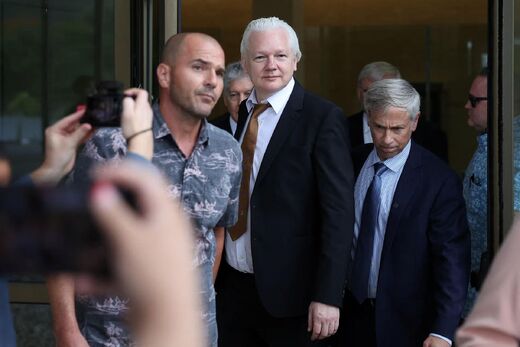
As shown by the new video (below), logging and mining operations on the Indonesian island are now penetrating the rainforest of uncontacted Hongana Manyawa people.
The footage was recently shot by a worker who was part of a team logging the land ahead of it being mined for nickel. Two Hongana Manyawa men cautiously approach the digger from afar, waving their weapons to express that their presence is not welcome. In response, the bulldozer drivers rev up their engines, causing the men to flee.
"It's particularly shocking because we didn't know that that part of the forest had been penetrated already by the companies. It's happening much faster than we anticipated," Callum Russell, Asia Research and Advocacy Officer at Survival International, told IFLScience.
New "catastrophic" footage shows uncontacted tribe near nickel mine from Survival International on Vimeo.
Dramatic new video shows uncontacted Hongana Manyawa in Indonesia, as bulldozers destroy their forest.
Their lands are being mined for nickel - for electric car batteries.
This is a human rights catastrophe unfolding.
Read more: https://www.survivalinternational.org/news/13781/
The Hongana Manyawa are an uncontacted tribe whose name means "People of the Forest" in their language. There are an estimated 300 to 500 uncontacted members of the tribe, as well as 3,000 Hongana Manyawa people who were contacted in the 1980s and maintain some contact with the wider world.
They live on Halmahera, an Indonesian island that just so happens to be sitting on one of the world's largest reserves of nickel. In recent years, the demand for nickel has skyrocketed due to its use in electric car batteries, bringing this once-quiet island to the attention of international mining corporations.
Weda Bay Nickel, a company partly owned by French mining company Eramet, started mining operations on the island in 2019, and they have significant plans to ramp up their efforts in the decades to come.
"Eramet - if you can imagine such an oxymoronic thing - sees themselves the Greta Thunberg of mining companies. They think they're the good guys who are mining for electric car batteries," Russell explained.
"The German chemical company BASF is looking to partner with them in Halmahera to do a big smelting project. Basically, they're going to make the nickel into a grade that can be used for electric car batteries. Again, it's this greenwashing stuff," he added.
"It's a deep irony that these people literally call themselves Hongana Manyawa - 'People of the Forest' - and yet they're the ones being destroyed in the name of the green transition," continued Russell.
Weda Bay Nickel has argued that their mining concessions are nowhere near the lands inhabited by uncontacted people. However, Survival International claims they have leaked internal documents showing that the company commissioned anthropologists who warned about the presence of uncontacted Hongana Manyawa people in and around the area.
The tribe has a deeply profound relationship with the forest they live within and rely upon. When a baby is born, their umbilical cord is planted in the ground alongside seeds. The resulting birth tree becomes rooted to the person's life, acting as a physical embodiment of the person's soul.
Even these sacred trees are not safe from logging, however. Russell explained to IFLScience that he recently spoke to a Hongana Manyawa man whose own birth tree had been cut down. He said: "He went back there last September and it had been destroyed by Weda Bay Nickel. It was just absolutely heartbreaking. You can imagine what that means to someone who believes that their souls are almost in these trees. They believe that trees have souls like human beings do. It's really heartbreaking."
Destruction of the surrounding environment isn't the only problem facing the Hongana Manyawa. Their isolation from the wider world means they have little to no immunity to the common diseases we regularly come across in the industrialized world, meaning their population could easily be decimated by an infection.
With outsiders increasingly encroaching on their land, they run the very real risk of exposing the Hongana Manyawa to fatal disease outbreaks.
"It is really genocidally dangerous because these people have no immunity to outside diseases. There are a litany of cases from South America to the Andaman Islands to Indonesia of tribes who have lost between 50 and 99 percent of their population or had been totally wiped out from contact," he added.
To push back against this threat, Survival International is lobbying every electronics company to pledge that they will not buy nickel from Halmahera, as well as pushing BASF to stop investing in nickel production on the island. They're also hoping to pressure the Indonesian government to put in the necessary safeguards to protect the island and the Hongana Manyawa.
"We want their lands to be protected... The Hongana Manyawa are not even yet recognized as Indigenous peoples. They haven't had their land recognized. They basically have the same rights as animals in the forest at the moment," Russell concluded.
"It's a really urgent case. But when we think we can make a difference."




Comment: See also: